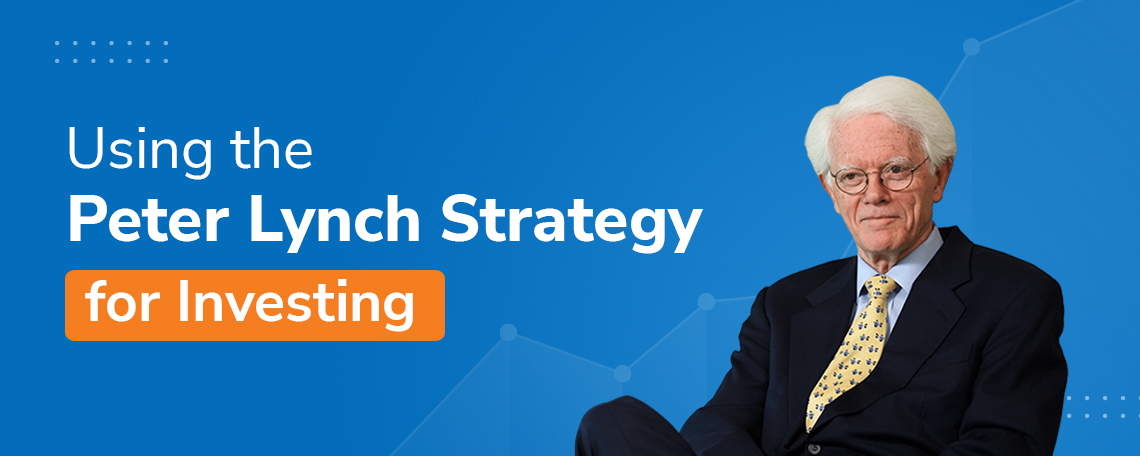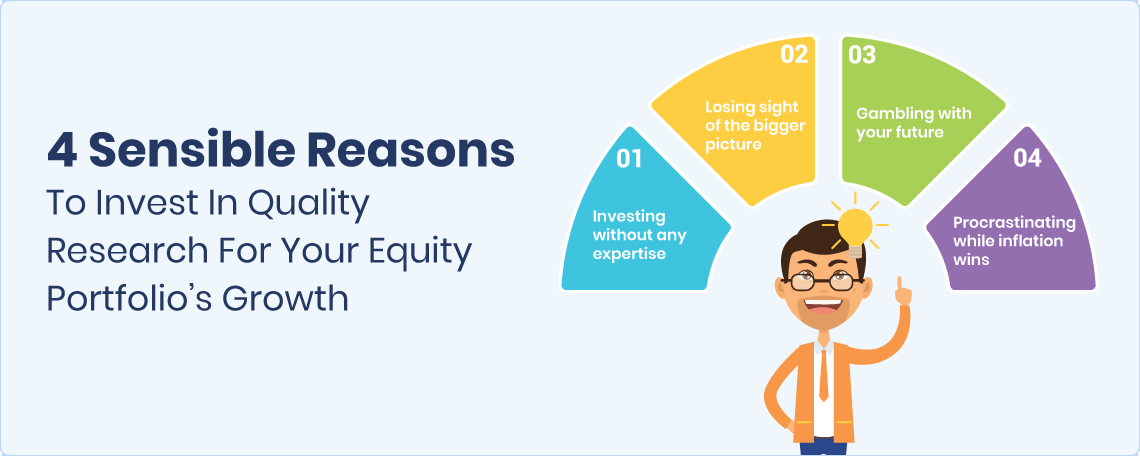Using The Peter Lynch Strategy For Investing
April 03, 2022

When we talk about the legends of wall street, the name Peter Lynch is one of the first few to pop up & we are not surprised. Everyone knows his story. After all, he is one of the most successful investors of all time. When Lynch became Fidelity Investment’s Magellan Fund's manager in 1977, it had $20 million in assets under its management (AUM). It then went on to become the largest mutual fund in the U.S. with $13 billion in assets by the time lynch retired after 13 years.
As portfolio manager between 1977 and 1990, Lynch averaged a 29.2% rate of return. A 29.2% rate of return is fantastic for any single year, let alone a 13-year period. Lynch also beat 99.5% of all other mutual funds during the last five years of his tenure. For context, here is a breakdown: If you had invested $1000 in the Magellan fund when Lynch took over, you would have walked away with $ 28,000 when he quit. Let that sink in!
Despite his successful career as both a fund manager & an author, Peter Lynch’s investment philosophy was quite simple. We are here to share some of his investing wisdom that we discovered in his interviews & his books One Up on Wall Street, Beating the Street & Learn to Earn.
So how do you as an investor select stocks as Lynch? Let’s dive in!
Lesson # 1: Buy only what you understand & know.
Perhaps the biggest lesson that investors can learn from Peter Lynch is to invest in ‘what you know’. This means companies for which you have a thorough understanding. Lynch believed that if you're prepared to invest in a company then you should be able to explain why in simple language so that even a fifth-grader could understand & quickly enough so that the fifth grader won't get bored.
Lynch understood that consumers are the core of the economy & his investment strategy reflected this. There are numerous examples of stories where Lynch found fantastic investment opportunities in his day-to-day life. Two examples are:
- He once invested in shares of the restaurant chain Dunkin Donuts not after reading about the company, but after being impressed by their coffee as a customer. That’s a clear example of a ground reality performance check.
- He also invested in an undergarment manufacturer namely Hanes, after his wife expressed satisfaction with their pantyhose. When a new competitor introduced a competing brand of pantyhose, Lynch bought samples of each and took them to his office for his colleagues to judge. When Hanes’ pantyhose was determined to be of higher quality for a similar price, his investment thesis was confirmed.
While Lynch often got his best ideas from being a consumer himself, he did not blindly invest in these ideas without performing an analysis first. Some of the things that you too can look for are:
- Invest in a predictable industry so that sudden trends won’t easily shake your stock and won’t attract much market competition.
- Ensure that the company is growing convincingly & has a niche with happy and satisfied customers.
- In order to avoid overexposed stocks, choose the company that is quite well-known but not to an extent where all the analysts keep talking about it.
- Pay attention to check if & when the company’s products or services are in demand.
- If the company is buying back shares, it shows that the company has a strong cash flow position.
Lesson # 2: Do your homework
Peter Lynch once famously said " The person that turns over the most rocks wins the game. And that’s always been my philosophy. "
If you look at 10 companies, you may find one that's interesting, if you look at 20, you might find two or if you look at 100, you'll probably find 10. Hence, the person that turns over the most rocks wins the game. By ‘turning over many rocks’ he meant investigating many stocks in different locations and industries. This strategy was evident in Lynch’s investing approach. It maximized his probability of finding companies with compelling investment prospects.
He believed in analysing & choosing stocks one by one as opposed to using some speculative platform to provide him with a list of ‘good stocks’. You too can follow in his footsteps & choose one stock at a time to get acquainted with the company & the industry. Some of the things that you can focus on are the company’s plan to expand, cost pressures, pitfalls & strengths.
Lynch also looked for several fundamental values when he was buying a stock. Such as:
- Percentage of Sales: If there is a product or service that initially attracts you to the company, make sure that it comprises a high enough percentage of sales to be meaningful. After all, a great product that only contributes to 5% of sales isn't going to have more than a marginal impact on a company's bottom line.
- PEG Ratio: This ratio of valuation to earnings growth rate should be looked at to see how much expectation is built into the stock. You want to seek out companies with strong earnings growth and reasonable valuations.
- Debt to Equity Ratio: Favour companies with strong cash positions and below-average debt-to-equity ratios. Strong cash flows and prudent management of assets give the company options in all types of market environments.
Lesson # 3: Understand the Importance of Diversification.
As a fund manager, Peter Lynch ran a tremendously diversified stock portfolio. Besides holding a high number of stocks his fund was also diversified by industry & more uniquely, Lynch also diversified his portfolio based on the expected earnings growth of the underlying businesses.
He believed that large companies with multi-billion dollar sales and 10% to 20% expected earnings growth provided stability to the portfolio while fast Growing companies with expected earnings growth between 20% and 50% were a source of alpha i.e. outperformance over the benchmark.
Perhaps the most important part of Lynch’s approach to diversification is that he did not buy stocks with less compelling investment prospects just to reduce the volatility of his portfolio. He understood that over diversifying a portfolio just to cast a wider net would ultimately reduce returns as investors take money that could be invested in their best idea and instead invest it in their nth best idea.
As far as individual investors are concerned, much of the benefits of diversification can be achieved by owning less than 20 stocks. This number will reduce risk and improve the chance of buying high-performing stocks.
Lesson # 4: Go long & be patient
“The real key to making money in stocks is not to get scared out of them.”
– Peter Lynch
Just like another well-known legendary investor Warren Buffet, Peter Lynch too began investing at a very young age. After his father’s death when he was merely 10 years old, he started caddying & although he didn’t have any money back then, he heard people talk about stocks all the time. It was the 50’s & the market was great.
Later at Boston College, he did a report on the air cargo industry & bought $300 worth of Flying Tiger airlines. He had done the research & he knew why he was buying. Flying Tiger wasn't carrying people, just cargo. Soon, the Vietnam war broke out & the company was required to fly a lot of stuff to Vietnam. Lynch’s patience had paid off & he paid for his graduate school from the profit he made with Flying Tiger. The profits were 10x the price of Lynch’s original investment. He would later joke that he attended Wharton University on a ‘Flying Tiger Graduate School Fellowship’.
Investors who invest for the long run have many advantages over those who don’t. An early entrance to the stock market showed Lynch the remarkable powers of compound returns, helping him to invest for the long run over the rest of his career. Moreover, long-term investing allows a better ability to withstand market downturns. If you are an investor seeking to build wealth over the long term, then stockaxis Emerging Market Leaders could be the ideal investment solution for you.
Final Thoughts
Like all successful investors, Lynch also kept his investment ideas simple. He stayed within his comfort zone, avoided emotions to ruin his returns, and stayed invested in good stocks long enough to deliver impressive returns.


















 Continue with Google
Continue with Google